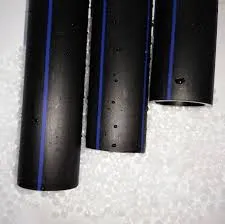Oct . 19, 2024 17:09 Back to list
hdpe pipe connector
Understanding HDPE Pipe Connectors An Essential Component in Modern Plumbing and Infrastructure
High-Density Polyethylene (HDPE) pipe connectors have gained significant popularity in various industries due to their outstanding durability, flexibility, and resistance to a range of environmental factors. As communities and industries move towards more sustainable practices, the use of HDPE materials has emerged as a preferred choice for piping systems. This article explores the characteristics, benefits, and applications of HDPE pipe connectors, showcasing their importance in modern infrastructure.
What is HDPE?
High-Density Polyethylene (HDPE) is a thermoplastic polymer known for its high strength-to-density ratio. It is produced from petroleum and is widely used in various applications, including piping, packaging, and plastic containers. HDPE pipes are commonly employed in water distribution systems, sewage treatment plants, and industrial equipment, making them a crucial component in both municipal and commercial infrastructure.
Features of HDPE Pipe Connectors
HDPE pipe connectors serve several critical functions in piping systems. They are primarily designed to join various lengths of HDPE pipes securely, ensuring a leak-proof connection that can withstand various pressures and temperatures. Here are some key features of HDPE pipe connectors
1. Durability HDPE connectors are highly resistant to corrosion, chemical exposure, and UV radiation. This durability extends the lifespan of the entire piping system, making them a cost-effective solution in the long run.
2. Flexibility HDPE connectors can easily accommodate thermal expansion and contraction, as well as ground movements, such as settling or shifting. This flexibility is crucial in regions prone to earthquakes or extreme weather conditions.
3. Lightweight Compared to traditional materials like metal or concrete, HDPE connectors are lightweight, making them easier to handle and install, thereby reducing labor costs and installation time.
4. Variety of Designs HDPE pipe connectors come in various designs, including couplings, elbows, tees, and reducers, to meet the specific needs of different projects. This versatility allows for seamless integration into existing systems.
5. Environmental Impact Being recyclable, HDPE materials contribute to sustainability efforts. Manufacturers often focus on producing HDPE connectors from recycled materials, further reducing their environmental footprint.
Benefits of Using HDPE Pipe Connectors
Employing HDPE pipe connectors in plumbing and infrastructure projects offers numerous advantages. Some of these include
hdpe pipe connector

1. Cost Efficiency The long lifespan and low maintenance requirements of HDPE connectors result in reduced long-term costs. While the initial investment may seem higher than traditional materials, the overall savings in repairs and replacements can be significant.
2. Simple Installation The lightweight nature and ease of handling of HDPE connectors allow for faster installation, which can lead to lower labor costs and quicker project completion times.
4. Adaptability HDPE pipe systems can be easily adapted to different environments and applications, making them suitable for residential, commercial, and industrial use.
5. Resistance to Biofouling Unlike some traditional materials, HDPE does not easily promote the growth of bacteria or algae, making it an excellent choice for potable water systems.
Applications of HDPE Pipe Connectors
HDPE pipe connectors are extensively utilized across various sectors, including
1. Water Distribution Used in municipal and residential water supply systems, HDPE connectors ensure safe and efficient transport of potable water.
2. Wastewater Management In sewage and drainage systems, HDPE connectors are integral to maintaining system integrity and preventing leaks that could harm the environment.
3. Agricultural Applications HDPE piping is used in irrigation systems, ensuring effective water management for farms and agricultural businesses.
4. Industrial Systems From chemical transport to cooling systems, HDPE connectors are employed in various industrial applications, providing reliable performance under varying conditions.
Conclusion
HDPE pipe connectors play a vital role in the efficiency and sustainability of modern piping systems. Their durability, flexibility, and cost-effectiveness make them a valuable choice for a variety of applications. As industries continue to seek greener alternatives, HDPE pipe connectors will undoubtedly remain at the forefront of innovative plumbing solutions. By understanding their features and benefits, stakeholders can make informed decisions that enhance the performance and longevity of their infrastructure projects.
-
Premium PVC-M Water Supply Pipe - Durable & Efficient
NewsAug.02,2025
-
Premium PP Welding Rod: GPT-4 Turbo Enhanced
NewsAug.01,2025
-
HDPE Drainage & Irrigation Pipe - Durable, Efficient Solutions
NewsAug.01,2025
-
Premium PVC Transparent Pipe: Durable & Clear Solutions
NewsJul.31,2025
-
High-Quality UPVC Electrical Pipe for Safe Wiring Solutions
NewsJul.30,2025
-
Premium PVC Pipe Fitting Supplier – Durable & Leak-Proof Solutions
NewsJul.30,2025

